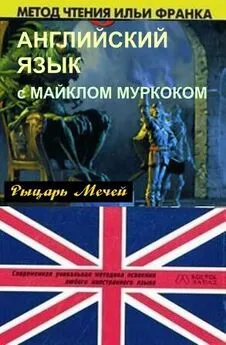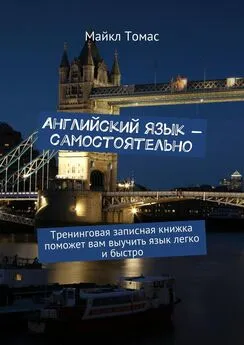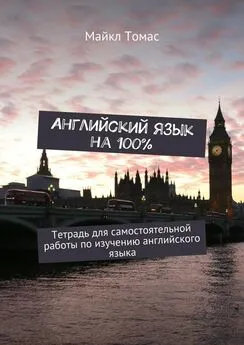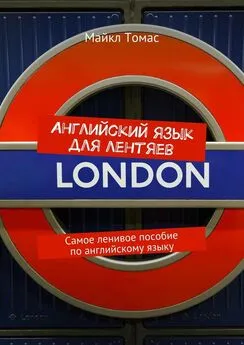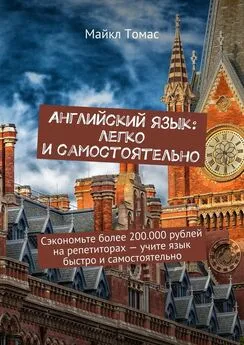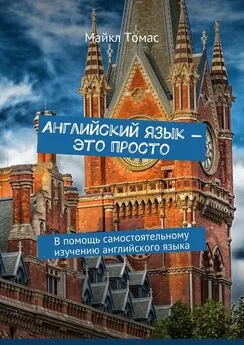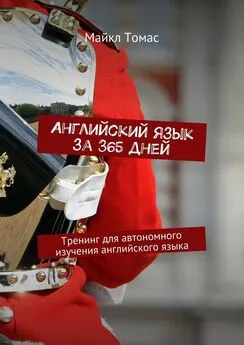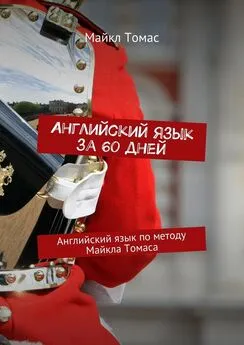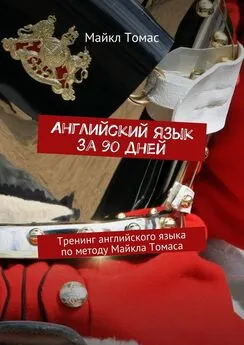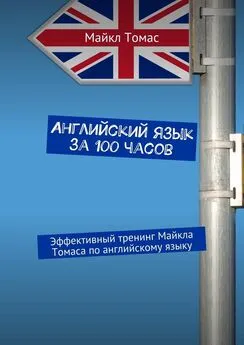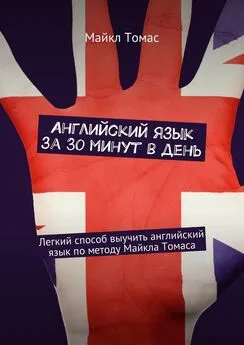Майкл Муркок - Английский язык с М. Муркоком
- Название:Английский язык с М. Муркоком
- Автор:
- Жанр:
- Издательство:неизвестно
- Год:неизвестен
- ISBN:нет данных
- Рейтинг:
- Избранное:Добавить в избранное
-
Отзывы:
-
Ваша оценка:
Майкл Муркок - Английский язык с М. Муркоком краткое содержание
В книге предлагается произведение "Рыцарь Мечей" Майкла Муркока, адаптированные (без упрощения текста оригинала) по методу Ильи Франка. Уникальность метода заключается в том, что запоминание слов и выражений происходит за счет их повторяемости, без заучивания и необходимости использовать словарь. Пособие способствует эффективному освоению языка, может служить дополнением к учебной программе. Предназначено для студентов, для изучающих английский язык самостоятельно, а также для всех интересующихся английской культурой.
Метод чтения Ильи Франка
Английский язык с М. Муркоком - читать онлайн бесплатно полную версию (весь текст целиком)
Интервал:
Закладка:
The Nhadragh's lips smiled slightly (губы надрага улыбнулись слегка; slightly — едва, слегка, еле-еле ).
`All the Nhadragh that remain are Mabden slaves (все надраги, которые остались /в живых/, — рабы мабденов) and have been for two hundred years (и являются /таковыми/ /уже/ двести лет). They only suffer us to live (они лишь позволяют нам жить; to suffer — страдать, претерпевать; позволять, разрешать ) in order to use us like dogs (для того, чтобы использовать нас, как псов), to sniff out those beings they call Shefanhow (чтобы вынюхивать тех существ, /которых/ они называют шефанхау). We swore oaths of loyalty to them in order to continue living (мы дали им клятву верности, чтобы продолжать жить = остаться в живых; to swear oaths — давать клятву, приносить присягу ).
ancestor [ˈænsəstə] honour [ˈɔnə] oath [əuƟ] loyalty [ˈlɔɪəltɪ]
`Hatred was not what the Nhadragh had once, Corum said. `You wanted our lands, yes. But you fought us without this hatred, and we fought you without it. You have learned hatred from the Mabden, Nhadragh, not from your ancestors. They knew honour. You did not. How could one of the older races make himself a Mabden slave?
The Nhadragh's lips smiled slightly.
`All the Nhadragh that remain are Mabden slaves and have been for two hundred years. They only suffer us to live in order to use us like dogs, to sniff out those beings they call Shefanhow. We swore oaths of loyalty to them in order to continue living.
`But could you not escape (но разве вы не могли сбежать)? There are other planes (/ведь/ существуют другие плоскости).
`The other planes were denied to us (другие плоскости были закрыты для нас; to deny — отрицать, отвергать; отказывать /в доступе/ ). Our historians had it (наши историки поняли; to have it — утверждать, полагать; найти решение, догадаться ) that the last great battle of the Vadhagh and the Nhadragh (что последняя великая битва вадагов и надрагов) so disrupted the equilibrium of those planes (настолько нарушила равновесие тех плоскостей) that they were closed to us by the Gods (что они были закрыты для нас Богами) …
`So you have relearnt superstition, too (значит, вы к тому же, вернулись к суевериям; to relearn — переучиваться, вновь изучать ), mused Corum (размышлял Корум). `Ah, what do these Mabden do to us (что же эти мабдены делают с нами)?
The Nhadragh began to laugh (надраг начал смеяться) and the laugh turned into a cough (смех перешел в кашель) and blood came out of his mouth (кровь пошла из его рта; to come out — выходить, появляться ) and poured down his chin (и потекла по подбородку; to pour — лить/ся/, разливать/ся/ ). As Corum wiped away the blood, he said (когда Корум вытер кровь, он произнес):
denied [dɪˈnaɪd] historian [hɪˈstɔ:rɪən] equilibrium [, i:kwɪˈlɪbrɪəm] laugh [lɑ:f] cough [kɔf]
`But could you not escape? There are other planes.
`The other planes were denied to us. Our historians had it that the last great battle of the Vadhagh and the Nhadragh so disrupted the equilibrium of those planes that they were closed to us by the Gods …
`So you have relearnt superstition, too, mused Corum. `Ah, what do these Mabden do to us?
The Nhadragh began to laugh and the laugh turned into a cough and blood came out of his mouth and poured down his chin. As Corum wiped away the blood, he said:
`They supersede us, Vadhagh (они вытесняют нас, вадаг; to supersede — заменять, смещать, занимать чье-то место ). They bring the darkness and they bring the terror (они несут тьму и ужас). They are the bane of beauty and the doom of truth (они — проклятье красоты и погибель правды; bane — убийца; отрава, бич ). The world is Mabden now (это мабденский мир теперь). We have no right to continue existing (мы не имеем права продолжать существование). Nature abhors us (природа ненавидит нас; to abhor — питать отвращение, ненавидеть ). We should not be here (мы не должны быть здесь)!
Corum sighed (Корум вздохнул).
`Is that your thinking, or theirs (это твое мнение или их; thinking — размышление, суждение )?
`It is a fact (это факт).
Corum shrugged (Корум пожал /плечами/).
supersede [, s (j) u:pəˈsi:d] beauty [ˈbju:tɪ] abhor [əbˈhɔ:]
`They supersede us, Vadhagh. They bring the darkness and they bring the terror. They are the bane of beauty and the doom of truth. The world is Mabden now. We have no right to continue existing. Nature abhors us. We should not be here!
Corum sighed.
`Is that your thinking, or theirs?
`It is a fact.
Corum shrugged.
`Perhaps (возможно).
`It is a fact, Vadhagh. You would be mad if you denied it (ты будешь = должно быть, сумасшедший, если /станешь/ отрицать это).
`You said you thought this the last of our castles (ты сказал, /что/ думал, /будто/ это последний из наших замков; to think ) …
`Not I (нет). I sensed there was another one (я чувствовал, /что/ есть еще один; to sense — чувствовать; осознавать ). I told them (я сказал им /об этом/; to tell ).
`And they have gone to seek it (и они отправились искать его)?
`Yes.
Corum gripped the being's shoulder (Корум схватил существо за плечо; to grip — схватить, крепко держать ).
castle [ˈkɑ:sl] shoulder [ˈʃəuldə]
`Perhaps.
`It is a fact, Vadhagh. You would be mad if you denied it.
`You said you thought this the last of our castles …
`Not I. I sensed there was another one. I told them.
`And they have gone to seek it?
`Yes.
Corum gripped the being's shoulder.
`Where (куда)?
The Nhadragh smiled (надраг улыбнулся).
`Where? Where else but in the West (куда /же/ еще, кроме как на запад)?
Corum ran to his horse (Корум побежал к коню; to run ).
`Stay (постой)! croaked the Nhadragh (каркнул надраг). Slay me, I pray you, Vadhagh (убей меня, умоляю, вадаг; to slay — убивать, сражать; to pray — молить/ся/, упрашивать ). Do not let me linger (не дай мне долго мучиться; to linger — задерживаться, медлить; медленно умирать )!
`I do not know how to kill (я не знаю, как убивать), Corum replied as he mounted the horse (ответил Корум, садясь на коня).
`Then you must learn, Vadhagh (тогда ты должен научиться, вадаг). You must learn! rasped the dying being (хрипло кричал умирающий; to rasp — издавать резкий, неприятный звук; говорить скрипучим голосом ) as Corum frantically forced his horse to gallop down the hill (когда Корум неистово заставил коня скакать галопом = погнал коня вниз с холма; frantically — неистово, яростно, безумно ).
rasped [rɑ:spt] dying [ˈdaɪɪŋ] frantically [ˈfræntɪk (ə) lɪ]
`Where?
The Nhadragh smiled.
`Where? Where else but in the West?
Corum ran to his horse.
`Stay! croaked the Nhadragh. Slay me, I pray you, Vadhagh. Do not let me linger!
`I do not know how to kill, Corum replied as he mounted the horse.
`Then you must learn, Vadhagh. You must learn! rasped the dying being as Corum frantically forced his horse to gallop down the hill.
CHAPTER FIVE (глава пятая)
A Lesson Learned (полученный урок)
And here was Castle Erorn (здесь был = показался замок Эрорн), her tinted towers entwined with greedy fires (его светлые башни /были/ охвачены /языками/ прожорливого огня; tint — бледный, светлый ненасыщенный тон; tinted — тонированный, слегка окрашенный; to entwine — сплетать/ся/, обвивать; greedy — жадный; прожорливый ). And still the surf boomed (по-прежнему прибой рокотал; to boom — гудеть, громыхать, реветь ) in the great black caverns within the headland (в огромных черных гротах у подножия мыса; cavern — пещера, грот, полость; headland — крутой выступающий в море мыс; крутой обрыв /которым кончается мыс/ ) on which Erorn was raised (на котором Эрорн был возведен) and it seemed that the sea protested (казалось, что море протестует; to protest — протестовать, возражать ), that the wind wailed its anger (/что/ ветер завывает злобно: «воет свой гнев»; to wail — издавать продолжительный скорбный звук, выть, оплакивать ), that the lashing foam sought desperately to drench the victorious flame (/что/ хлещущая пена пытается отчаянно затушить победоносное пламя; to lash — хлестать, стегать; to seek — искать; добиваться, стремиться; to drench — смачивать, промачивать насквозь ).
Castle Erorn shuddered as she perished (замок Эрорн содрогнулся, погибая; to shudder — вздрагивать, содрогаться ) and the bearded Mabden laughed at her downfall (бородатые мабдены засмеялись над его крушением; downfall — низвержение, падение; крах ), shaking the brass and gold trappings of their chariots (сотрясая медные и золотые украшения своих колесниц; trappings — внешние атрибуты /занимаемой должности и т. п. /; украшения; /парадная/ конская сбруя ), casting triumphant glances at the little row of corpses (бросая торжествующие взгляды на несколько трупов; row — ряд, линия ) lying in a semi-circle before them (лежавших полукругом перед ними).
Читать дальшеИнтервал:
Закладка:
